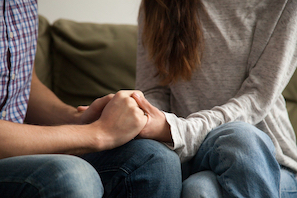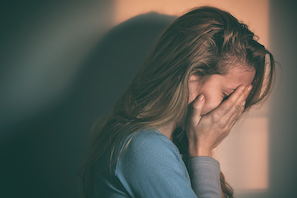Orelia and her husband, James, had been married for 26 years when he suddenly died of an unexpected stroke. She and James had met somewhat later in life and did not get married until they were in their late 30s. Orelia knew that he was the love of her life and they had been lucky enough that he had retired only a few months before his death and they were looking forward to travelling. In fact, they had been planning to embark on a world cruise only a few weeks before his death.
Unable to face the trip without the love of her life, Oreilia gave her tickets to her closest friend as a thank you gift for her years of friendship and her support during those first awful days after James’ death. Now alone in her house with only memories of James, Orelia rarely got out of bed and often slept the entire day without realising how much time had passed since she was up and around. When she was able to stay awake, she found herself staring at the television blankly, tears streaming down her face as she remembered all of the hopes and plans she and James had made for the future. But now she felt they were gone, all gone.
As weeks passed, Orelia talked less and less to friends and family. They became concerned when they realized she was holed up in her house, sleeping and crying most of the time. When Orelia’s friend Grace stopped by to see her, she was shocked to see her usually immaculately dressed friend with her hair unbrushed for what appeared like days and her house dress hanging loosely from her gaunt and thin body. Grace immediately called her own doctor and explained the situation. The doctor agreed that Orelia was in need of immediate care and should start seeing a psychologist or counsellor immediately. Grace helped Orelia take a shower, get dressed and took her to the doctor. After a short interview in which Orelia revealed that she really just wished that she could join James, the doctor made a recommendation for a counsellor and talked extensively to Orelia about whether or not she had any actual suicide plan. As it became clear that Orelia simply wished to join James but had no idea how she might hurt herself, the doctor coaxed Orelia into making an agreement not to hurting herself and made sure that an appointment was scheduled for a counselling session the next day. (This article is electronically protected – Copyright © Associated Counsellors & Psychologists Sydney PTY LTD)
Grace agreed to stay with Orelia for the next several days until she had established a relationship with her counsellor and was feeling stronger.













































